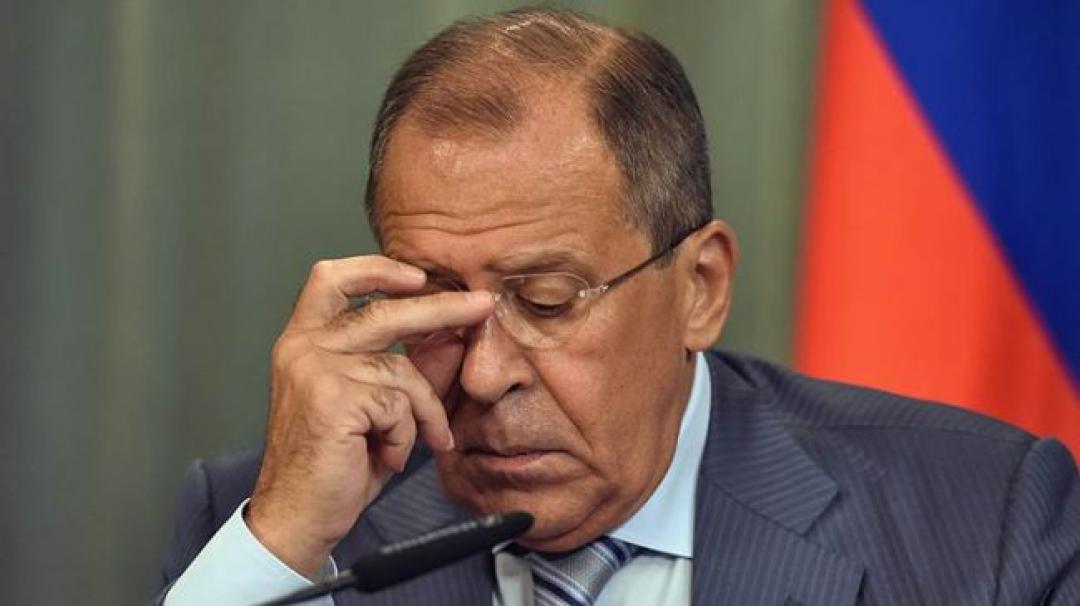
Russia expresses scepticism towards the Eastern Partnership

On 18 December, in a letter to the Russian newspaper Rossiyskaya Gazeta, Russian Minister of Foreign Affairs Sergey Lavrov stated that the EU Eastern Partnership (EaP) initiative was an alarming signal to Russia. He stated that it was aimed at breaking Russia’s relations with its neighbours and that the sad consequences “of this selfish policy“ are felt to this day.
He also spoke about how the concept of European unity began being perceived from an EU-centric perspective, not embedding Russia within its gaze. “Unfortunately, for many in the West, the pan-European perspective began to be perceived solely through the prism of victory in the Cold War. The principles of equal cooperation have been replaced by the illusion that Euro-Atlantic security should be built only around NATO, and the very concept of Europe should be associated exclusively with the European Union. Everything else is some kind of concentric circles around these centres of legitimacy;” he said.
“In a concrete refraction in our relations with Brussels, we increasingly became witnesses to the absolutization of EU supranational norms and attempts to apply them retroactively to all other countries. We were invited to take ready-made, welded decisions within the EU, which did not involve either their discussion with us, or consideration of Russian interests. In the lexicon of Brussels, the term Europe has finally become synonymous with the European Union. It is assumed that real Europeans are members of the EU and all the other countries of the continent still have to earn the high rank of Europeans. Thus, they are trying again to artificially divide the continent, distorting both geography and history,” he added.
Nonetheless, Lavrov stayed optimistic that with the structure of the EU Commission, relations between the EU and Russia could improve. “The start of the next institutional cycle in the EU objectively opens up the possibility of a “new start” in our relations. At a minimum, this is an occasion to seriously think about who we are for each other in a rapidly changing world. I would like to expect that those who are responsible for making decisions in the European Union will be guided by a strategic vision and act in line with the covenants of great European politicians such as Charles de Gaulle and Helmut Kohl, who thought in terms of a pan-European home. Artificial restrictions on cooperation for the sake of someone's geopolitical interests do not solve the problems, but only create new and weaken the economic positions of Europe. I am convinced that maintaining the identity and competitiveness of European cultures and economies under the onslaught of globalization is possible only by adding up the comparative advantages of all countries and integration associations of our common Eurasia,” he said.
This is not the first time Lavrov spoke openly against the creation of the Eastern Partnership. When the initiative was formed in 2009, Lavrov said that the initiative was an “EU attempt to expand its "sphere of influence" in the quest for hydrocarbons.” He added that the EU were putting undue pressure on Belarus by suggesting it might be marginalised if it followed Russia in recognising the independence of Georgian breakaway regions of Tskhinvali (South Ossetia) and Abkhazia. "Is this promoting democracy or is it blackmail? It's about pulling countries from the positions they want to take as sovereign states," he added. The Swedish and Polish Foreign Ministers in that time, Carl Bildt and Radek Sikorski respectively, regarded Lavrov’s statement as "completely unacceptable" and that the EaP countries “opted[-in] themselves” to join the initiative.
In a policy paper published this past July, the EU Institute for Security Studies analysed the major shifts which happened in the EaP countries 10 years after the initiative was formed. The paper argued that 6 major trends emerged with the forming of the EaP, namely: 1) Russia’s increased challenges to the rising polycentrism in global politics; 2) the growing regional security deficit within the EaP countries; 3) the different policy paths the EaP countries follow which lead to the coining of the definition of “a post-Soviet region“; 4) the increased understanding of the concept of citizenship within the EaP countries; 5) a significant demographic decline within the EaP countries (with the exemption of Azerbaijan); and 6) the rapid development and expansion of the IT sector within the EaP countries. The paper argued that in order to further the EaP, the EU needs to: 1) foster the environment of reforms; 2) to invest in the development of infrastructure; 3) to enhance the security cooperation; 4) and to improve the channels of communication.
The Eastern Partnership was officially launched in May 2009 when the Czech Republic (as the chair country of the EU) invited the leaders of the six members (Armenia, Azerbaijan, Belarus, Georgia, Moldova and Ukraine) to the initiative. It was established as a specific Eastern dimension of the EU Neighbourhood Policy, which contained both bilateral and multilateral tracks. The Eastern Partnership provides an institutionalised forum for discussing visa agreements, free trade deals, and strategic partnership agreements with the EU's eastern neighbours, while avoiding the topic of accession in the EU. On 13 May, on the 10 year anniversary of the forming of the EaP, the former High Representative for EU Foreign and Security Policy Federica Mogherini stated that the reform, implementation and delivery of the agreed commitments must remain the key priority of the partnership between the EU and the EaP states (Caucasus Watch reported).
See Also


Simonyan: “Armenia Should Trade with Turkey and Azerbaijan Instead of Closing Borders”

Mirzoyan Meets US Deputy Assistant Secretary Joshua Huck

Azerbaijani President Holds Talks with UAE and German Business Delegations on Economic Cooperation

Grigoryan Confirms Armenia’s Readiness to Dissolve OSCE Minsk Group Upon Peace Treaty Signing

